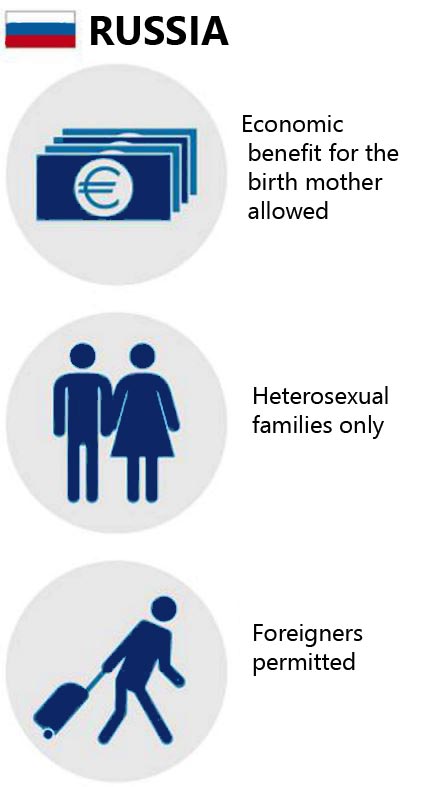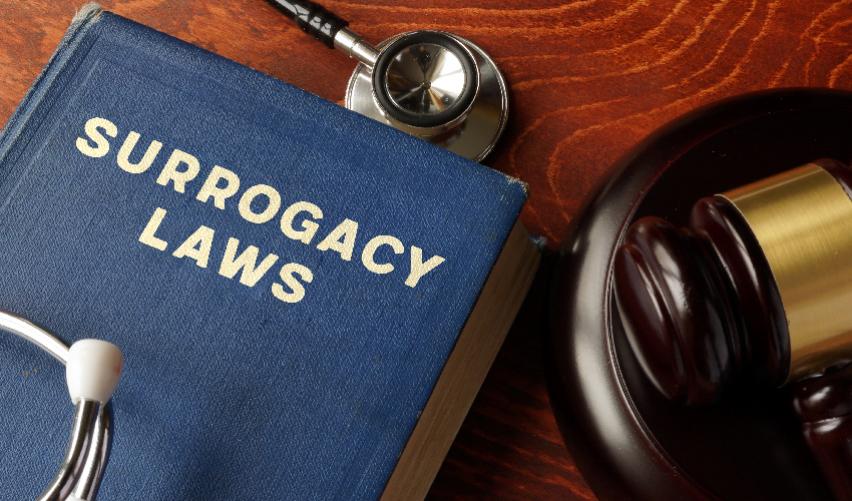Table of Content
Getting a detailed understanding of surrogacy laws in Russia is quite important in case you are planning your surrogacy journey in the country. While surrogacy has been legal for heterosexual couples and unmarried men and women in Russia, one still needs to connect with a reputed surrogacy agency in Russia like Become Parents. That way, you can always streamline your surrogacy journey without getting into any legal or medical complications.
Is surrogacy legal in Russia?
So a common question Is surrogacy legal in Russia? Yes, surrogacy is legal in Russia and there is a certain criterion that needs to be fulfilled to be eligible for a surrogacy program within the country.
- A medical evaluation must reveal that the intending parents are unable to conceive on their own.
- It doesn’t matter if the intending parents are married or not
- International participants are welcome in regional surrogacy programs.
- In Russia, surrogates are granted parental rights. On the other hand, the surrogate agrees to deliver the child to the intended parents by signing a contract specifying both parties’ rights.
- There is no genetic link between the child and the surrogate mother as she is not permitted to use her own eggs for the surrogacy agreement.
- It implies that the gestational age of the mother determines the eligibility of all surrogates.
In Russia, medical technology and the legal surrogacy industry have both evolved, but legal regulation still needs to be strengthened. That said, the conflict between the woman who carried and gave birth to the child and the biological parents may arise as a result of certain legal issues. This is where the role of a surrogacy agency with the right knowledge of Russian surrogacy laws is quite critical.
Who is eligible for being the surrogate mother as per Russia surrogacy law?
- The age range for a surrogate mother is 20 to 35 and she does not have to be married
- A prospective surrogate must be emotionally stable, physically fit, and have healthy children of her own
- She must give her consent in writing to participate in the surrogacy program
- The candidate must also be ready to undergo a slit of tests and diagnoses to confirm her eligibility for the program
Surrogacy laws in Russia give the preemptive right to abandon a kid with a surrogate mother. The Family Code states as a result that married couples can only register as parents of a child with the consent of the mother of the child.
According to the Federal Law “On Acts of Civil Status,” at the request of the spouses who have consented to the implantation of the embryo into another woman, a document issued by a medical organization confirming the fact of obtaining consent from the surrogate mother must be submitted concurrently with the document confirming the fact of the child’s birth on the record of the specified spouses.
Russian jurisprudence may contain court decisions about a dispute between intermediaries who select a surrogate mother in Russia and individuals who wish to use a surrogate mother. The reasons for failure to conceive despite receiving medical treatment range significantly and can be as simple as failing to perform one’s tasks or as complex as giving birth to a sick child.
Other key aspects of surrogacy laws in Russia

Not much is mentioned regarding single-men surrogacy laws in Russia. The issue at hand is whether a kid born via a surrogate mother is still eligible for registration if the “mother” column has an option in it.
It is not specifically forbidden by surrogacy laws in Russia for a man who is not married to become a surrogate mother’s client. Moreover, Russian judicial practice is contradictory on this issue. For instance, a man’s claim that two children born to a surrogate mother were his offspring was examined by the Tushinsky District Court in Moscow.
The court ruled that birth records for children should not include any information about the surrogate mother or father. The court’s decision was motivated by the absence of a system for recording the birth and parents of a child born to an unidentified mother.
The Smolninsky District Court in St. Petersburg, on the other hand, made the opposite decision, citing the equality of rights for men and women under current law and the absence of any clear limitations.
Despite Russia’s restriction on foreigners using commercial surrogacy, it is still legal to bear a kid within the country for financial gain. The procedure is still available to single women and heterosexual couples who are infertile. On the other hand, the prohibition on the donation of eggs is forcing people to pursue parenthood outside of national lines.
According to the Russian surrogacy sector, more and more Russians are travelling to Georgia, Australia and Kenya for medical care at low cost. Since the war obscured Ukraine as a popular surrogacy destination, the latter option is also becoming more and more popular among Western couples.
Why choose Become Parents?
At Become Parents, our qualified legal professionals will be by your side during every given moment of your surrogacy journey. These professionals, who have years of training and expertise, may advise and assist you on a list of legal complications and hassles.
For a free consultation, get in touch with one of our client coordinators right away!

